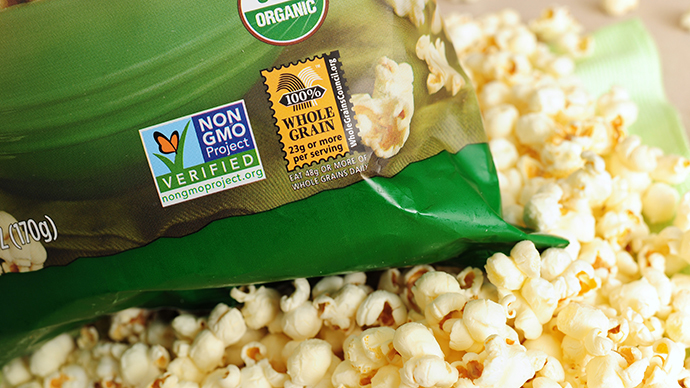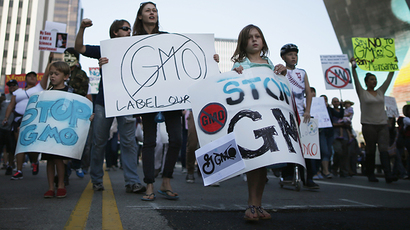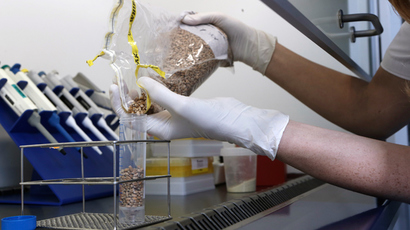Monsanto and Pepsi trying to stop GMO labeling law in Washington State

A Washington State ballot measure to label food featuring genetically modified crops is under fire as food and chemical corporations pour millions of dollars against the campaign.
On November 5, voters will head to the polls to decide whether or not to label food containing crops that have been genetically modified, but what started out as a landslide victory in the making has turned into a tight contest amidst massive corporate spending.
Supporters of ballot measure I-522 argue that this is an issue of transparency, and letting consumers know when their food contains genetically modified organisms (GMO) would enable them to make more educated decisions. They also say that GMO are not safe for human or animal consumption, and cause environmental problems by promoting the use of certain farming chemicals.
Opponents, spearheaded by the Grocery Manufacturers Association (GMA), claim that not only is genetically modified food safe to eat, but also that the initiative would mistakenly cause people to think there’s something wrong with products featuring GMO labels. The end result would be that the cost of food at grocery stores would rise and place an unnecessary burden on shoppers.
"It would require tens of thousands of common food and beverage products to be relabeled exclusively for Washington state unless they are remade with higher-priced, specially developed ingredients," Brian Kennedy, GMA spokesman, said to Al Jazeera America. "The measure will increase grocery costs for a typical Washington family by hundreds of dollars per year."
Both sides have raised about $28 million combined in campaign spending, but the vast majority of the cash – $22 million, to be precise – has come from groups opposing the bill. The GMA, a group acting on the behalf of more than 300 different food and beverage companies, has raised $11 million to push back against I-522. Other corporations like PepsiCo, General Mills, Nestle, and Monsanto are major fundraising contributors. Monsanto alone contributed roughly $5.4 million in funds, according to Reuters.
Supporters of GMO labeling, meanwhile, have raised roughly $6.8 million.
"They are making this the most expensive race and are desperately adding last-minute money to try and buy this election," Liz Larter, spokeswoman for the "Yes on 522" campaign, told Reuters.
Regardless of the reason, the race has certainly tightened. In September, one poll showed support for labeling up by a staggering 45 percent. Two recent polls tell a much different story, though: Supporters are still leading, but by much smaller margins. One poll showed them ahead 45 to 38 percent, while the other indicated an even slimmer advantage of 46 to 42 percent.
During the 2012 national election, a similar initiative was put to a vote in California, where it was defeated by a vote of 51.4 percent against to 48.6 percent in favor.














